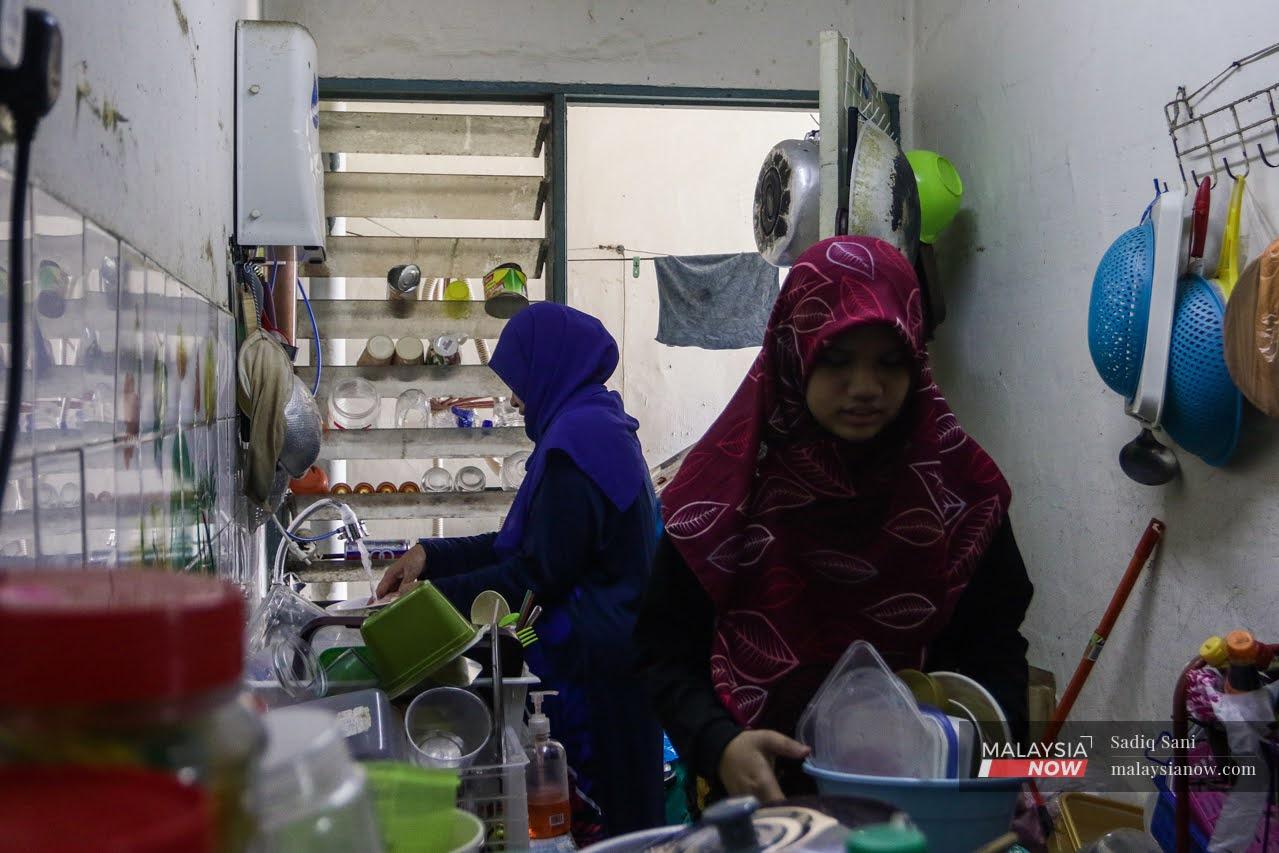With Ramadan comes a world of worries for urban poor
Even as the country gears up for the fasting month and Hari Raya, families living below the poverty line find it difficult to plan beyond the next day.
Just In
Ramadan, one of the biggest events on the Muslim calendar, is normally a cheerful and lively affair.
Bazaars open throughout the country where customers throng to sample the delicious food prepared by vendors, set out beneath scores of colourful canopies.
At night, meanwhile, more crowds gather at markets and expos to purchase goods and necessities ahead of Aidilfitri.
After more than two years of Covid-19 and pandemic-related restrictions, many are looking forward to the start of the fasting month this weekend – but not everyone.
Even as the hustle and bustle of Ramadan preparations begins, in many cities, the daily struggle just to put food on the table continues as always for the pockets of urban poor.
“If no one helped us with food, none of us would eat.”
For them, Ramadan brings less anticipation than it does uneasiness and concern.
Adawiyah, a housewife in Dengkil, knows that the arrival of Ramadan means a month without wages for her husband, an Indonesian who works as a manual labourer building houses for private developments in Selangor and Negeri Sembilan.
“The boss will order a break from all work for a month,” she told MalaysiaNow.
“So we won’t have any money. If he does odd jobs like repair work, he gets paid by the week, not every day.”
Adawiyah and her husband have five children. The oldest is 11 and the youngest is just two years old.
Even on normal days, it is a struggle to feed all five of them. Often, the best she can do is to fry some noodles. If there are any leftovers, she keeps them for the next day.
Once in a while, a neighbour drops by with some gravy or side dishes.
“If no one helped us with food like that, none of us would eat,” Adawiyah said.
As a general rule, the family only gets rice to eat when her husband’s salary comes in.
“I cook this with a little bit of chicken,” Adawiyah added. “When the rice and chicken runs out, we wait until there is enough money to buy more.”
Still, she considers the family fortunate as her husband has many friends who do what they can to help.
“Whatever they give, we save for the fasting month,” she said.
“If there is anything to save, that is. The children are growing so they eat a lot right now.”
Living below the poverty line
Adawiyah and her husband moved from Klang to Dengkil in 2018. From time to time, they receive assistance from their neighbours as well as community leaders and NGOs who give them cash aid and food.
Dependent on her husband’s salary of less than RM2,000 a month, her family lives well below Malaysia’s poverty threshold of RM2,208.

At a low-cost housing unit in Petaling Jaya, a housewife called Ida told MalaysiaNow that the pandemic had brought little change to her family’s modest celebrations.
Each year, she prepares cheap side dishes from whatever she can find at the market.
“Whatever we eat when we break our fast, that is all we have until the pre-dawn meal,” she said. “We rarely eat more than once a day.”
This has been the norm for her family since her six children were small.
“Now that they are older, they understand,” Ida said. “What is there, they eat.”
Ida’s husband works as a lorry driver, offering transportation services for heavy goods. But the economic slump has meant little demand, and the family’s finances are rapidly shrinking.
At the moment, two of Ida’s children are being treated for tuberculosis – one at Hospital Kuala Lumpur and the other at Hospital Shah Alam. Each month, Ida spends about RM150 on transport and medication.
She herself is not in the best of health. A chronic back problem limits her movements and prevents her from going out to work alongside her husband.
In the kitchen, a few tins of sardines and a bottle of cordial sit in the otherwise empty cupboard. The fridge meanwhile holds only some meagre leftovers and a container of water.

In the same neighbourhood, a single mother who introduced herself as Kak Nani told MalaysiaNow that she had yet to begin preparing for Ramadan.
Her husband died of a heart attack in 2020 and since then, she and her three children have been on their own.
With no permanent job, Nani depends on what little she makes from a part-time business online. Her oldest daughter who recently finished her SPM exam is looking for a job to help cover the cost of pocket money for her siblings.
But even if she manages to find one, Nani said the cost of living in the city had driven her to consider returning to her village in Dungun, Terengganu.
For now, her friends and neighbours are urging her to stay, for the sake of her children who are still attending school.
“Sometimes people offer to help and they give donations to my children who bring them home to me.
“If people give us donations, we accept them,” Nani said. “But we will not ask for charity.”
Subscribe to our newsletter
To be updated with all the latest news and analyses daily.
